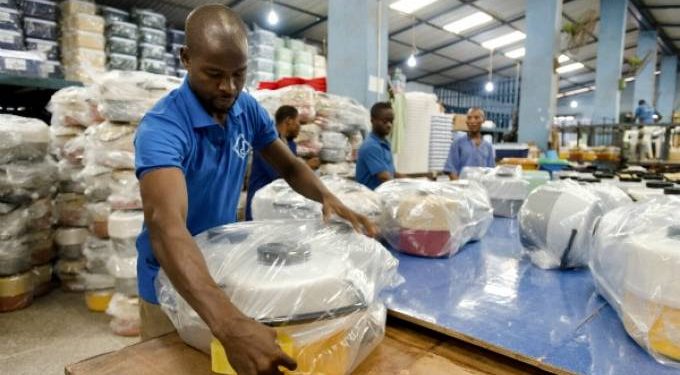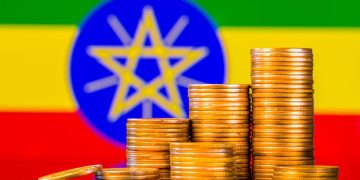Which African country is the cheapest for starting a business?
The Doing Business 2020 study published by the World Bank showed that developing economies are catching up with developed economies in the ease of doing business.
However, the gap remains wide as some countries have made the cost of business extremely low to encourage more economic activity. In contrast, others have high or nearly inaccessible fees to protect existing businesses or simply cash in on the entrepreneurial spirit.
The infographic below by BusinessFinancing.co.uk examines the startup cost for setting up a business in Africa using data from the Doing Business 2020 report.
According to the report, starting a new business is least affordable in Congo, where $1,232 in fees equates to 2,554% of the average monthly income. The report also affirms that the priciest place on the continent to set up a business is Equatorial Guinea ($2,322), where a $324 paycheck means a 718% affordability rate.
The Cost of Starting a Business in Every Country in Africa.


Among several countries in Sub-Saharan Africa, Rwanda is the only nation that waives fees for entrepreneurs for the first two years to allow businesses to get started.
- The economies in Sub-Saharan Africa with the most notable improvement in Doing Business 2020 are Togo and Nigeria.
- Only two Sub-Saharan African economies rank in the top 50 on the ease of doing business; Mauritius and Rwanda.
Economies in Sub-Saharan Africa continue to lag in terms of reforms
The Doing Business report, which recognises the important work countries have done to improve their regulatory environments, affirmed Togo as a bright spot despite Sub-Saharan Africa ranking as one of the weak-performing regions on the ease of doing business with an average score of 51.8, well below the OECD high-income economy average of 78.4 and the global average of 63.0.
Must Read: GSE Composite Index posts 41.3% YTD return for investors
Compared to the previous year, Sub-Saharan African economies raised their average ease of doing business score by just 1 percentage point in Doing Business 2020. In contrast, economies in the Middle East and North Africa region raised their average score by 1.9.
Ease of doing business ranking – 2020Ease of doing business ranking

What the report says on reforming for economic advancement
The Doing Business report also acknowledged the two economies from Sub-Saharan Africa that improved the most on the ease of doing business after implementing regulatory reforms. In Doing Business 2020, the top two improvers in Sub-Saharan Africa are Togo and Nigeria.
These economies implemented regulatory reforms that focused primarily on the areas of starting a business, dealing with construction permits, and trading across borders.
The 10 economies improving the most across three or more areas measured by Doing Business in 2018/19

According to the report, Nigeria appears as one of the top improvers for the second time, and the motivation for reform in Nigeria and Togo was in part the developmental achievements of their neighbours. Rwanda’s progress over the past 10 years inspired authorities in Togo, leading several Togolese delegations to visit Kigali to learn about successful reforms.
Togo’s president set a goal to be number one in West Africa in Doing Business 2020. To achieve this target, Togo made significant reform efforts in the areas of starting a business, registering property, and getting credit. Nigeria has embarked on a comprehensive reform journey following the example of Kenya.
Summaries of doing business reforms for key economies in Sub-Saharan Africa
Nigeria
- Nigeria made starting a business easier by reducing the time needed to register a company and improving online platforms. This reform applies to both Kano and Lagos. Nigeria (Kano) also made starting a business easier by requiring no on-site inspections for business premises registration.
- Nigeria made getting electricity easier by allowing certified engineers to conduct inspections for new connections. This reform applies to both Kano and Lagos.
- Nigeria reduced the time to export and import by further upgrading its electronic system and launching e-payment of fees. This reform applies to both Kano and Lagos.
Rwanda
- Rwanda made starting a business easier by exempting newly formed small and medium-size enterprises from paying the trading license tax for their first two years of operation.
- Rwanda made dealing with construction permits faster by reducing the time to obtain a water and sewage connection. Rwanda also improved building quality control by requiring all construction professionals to obtain liability insurance on buildings once in use.
- Rwanda improved the reliability of power supply by upgrading its power grid infrastructure.
Kenya
- Kenya improved the reliability of electricity supply by modernising its existing infrastructure and inaugurating a new substation in Nairobi.
- Kenya made property registration more difficult because of an additional payment slip generation and increased online consent application and title search fees. At the same time, property registration was made faster by moving consents to transfer and payment verification online.
- Kenya strengthened access to credit by introducing online registration, modification and cancellation of security interests, and public online searches of its collateral registry.
- Kenya strengthened minority investor protections by requiring shareholders to approve the election and dismissal of an external auditor.
- Kenya made paying taxes easier by implementing an online filing and payment system for social security contributions.








